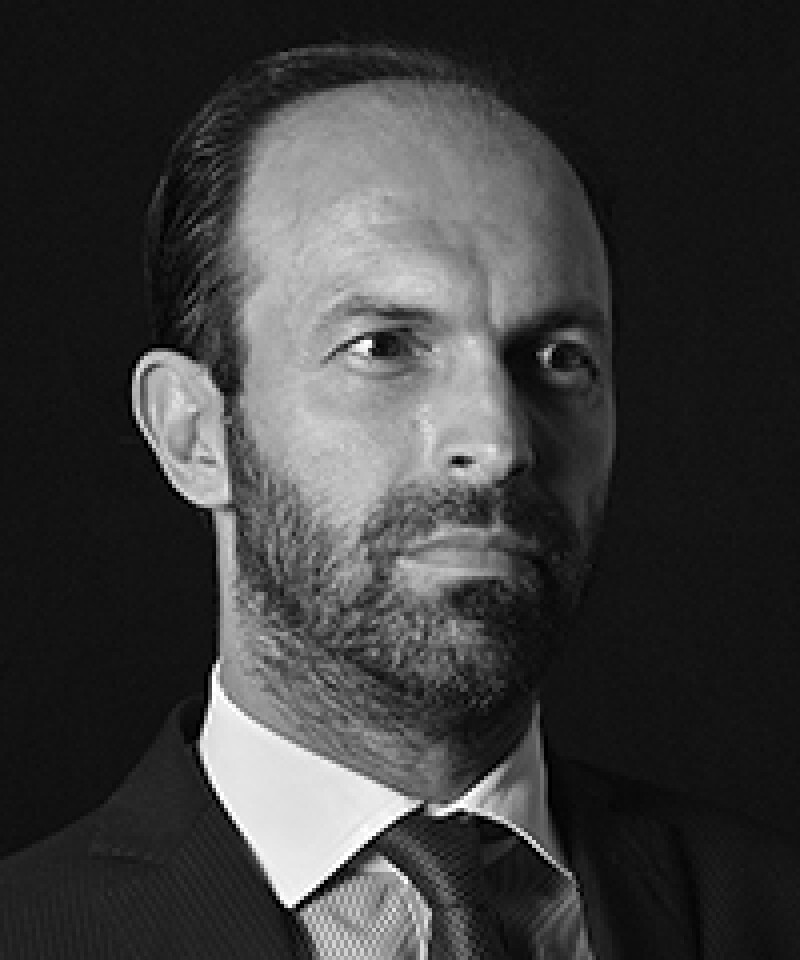The Italian Supreme Court of Cassation (Supreme Court) has analysed, with decision No. 32255/2018, the requirements necessary to benefit from the withholding tax (WHT) exemption on profits distributed to companies resident in other member states of the EU pursuant to Directive 2011/96/EU (Directive or Parent-Subsidiary Directive), as implemented in Italy by Article 27-bis of Presidential Decree No. 600/1973.
Background
The case concerned an appeal against the refusal of the Italian Revenue Agency (Agenzia delle Entrate) to refund the WHT levied on profits distributed in 2004 (but generated in fiscal year 2003) by an Italian tax-resident company to its Luxembourg parent company (LuxCo). LuxCo had its registered office and tax residence in Luxembourg and it was ordinarily subject to income tax therein.
The Supreme Court rejected LuxCo's appeal on the ground that LuxCo was not entitled to the refund because the dividends had already been granted a tax exemption according to Luxembourg's domestic regime.
Notably, the court ruled that the WHT exemption could not apply (and therefore, the refund should not be granted) because:
i) The rationale of Article 27-bis is "to avoid double taxation"; and
ii) No "double taxation" occurred due to the Luxembourg dividend exemption regime, irrespective of the fact that LuxCo was, in any case, subject to tax in Luxembourg.
Secondly, the Supreme Court rejected the argument that LuxCo was discriminated under the freedom of establishment and the free movement of capital because the Italian tax provisions applicable (ratione temporis) to the distributions of dividends in favour of Italian parent companies provided for full taxation of dividends.
Therefore, Italian parent companies were not in a more favourable position compared to non-resident parent companies not entitled to the Parent-Subsidiary Directive.
Implementation of the Parent-Subsidiary in Italy
The Parent-Subsidiary Directive aims to encourage the grouping of companies located in different EU member states through the elimination of economic (and juridical) double taxation, thus ensuring multinational groups a tax treatment similar to that a group of companies would have been subject to in a domestic market.
To this end, the Parent-Subsidiary Directive provides for both:
i) A WHT exemption on dividends in the EU member state of the distributing company; and
ii) The exemption from taxation – or the 'indirect' tax credit – on such dividends in the hands of the recipient company.
The Parent-Subsidiary Directive was implemented in Italy by amending Article 89 (former Article 96-bis) of the Income Tax Code concerning the tax regime of profits received by Italian resident companies, as well as introducing Article 27-bis, which sets out the exemption from WHT on profits distributed to EU parent companies.
In particular, Article 27-bis states that the distributions of profits to companies resident in other EU member states are exempt from ordinary WHTs to the extent that the recipient entities:
i) Take one of the legal forms provided for in Annex I, Part A, of the Parent-Subsidiary Directive;
ii) Are not deemed to be tax resident outside the EU under a double taxation agreement;
iii) Are subject, in the member state of residence, to one of the income taxes listed under Annex I, Part B, of the Parent-Subsidiary Directive, without being entitled to elective or exemption regimes that are not temporally or territorially limited; and
iv) Have a minimum direct holding of 10% in the capital of the Italian company, for an uninterrupted period of 12 months (so-called 'holding period').
The above requirements must be demonstrated by keeping specific documentation released by the tax authority of the member state of the recipient company acknowledging its legal form, residence and tax liability, as well self-declaration from the recipient company confirming that the shareholding has been held uninterruptedly for at least 12 months.
Subject-to-tax requirement
The decision of the Supreme Court specifically dealt with the subject-to-tax requirement for the recipient company mentioned under point (iii) above.
This requirement is aimed at defining the scope of the Directive in order to exclude its applicability to cases where double taxation cannot occur. Therefore, subject-to-tax has traditionally been interpreted as the necessity for a company to be potentially liable to corporate tax in respect of one of the taxes indicated in the Annex to the Directive, rather than requiring the recipient company to actually pay such taxes.
In light of the above, companies that benefit from a subjective exemption (i.e. the exemptions deriving from the nature of the taxpayers, who have the purpose of excluding aborigine a tax obligation to arise) have usually been deemed to fall outside the scope of application of the Directive.
The applicability of the Directive, and therefore of Article 27-bis, is instead far more controversial concerning companies benefitting from a partial subjective exemption. In particular, it is not clear whether the benefits of the Parent-Subsidiary Directive should be granted with exclusive respect to the profits generated by its taxable activities, or contrarily taking into account all of its profits.
On the other hand, objective exemptions concerning, for instance, certain categories of income or activities, should not jeopardize the entitlement to the benefits of the Parent-Subsidiary Directive.
In this respect, the Court of Justice of the European Union (CJEU) has recently issued a ruling concerning the WHT exemption on dividends distributed by a Belgian entity in favour of two Dutch recipient companies – which qualify as "fiscal investment institutions" – benefitting from a 0% tax rate to the extent that all their profits would be distributed to their shareholders (Wereldhave).
In sum, the CJEU clarified that the subject-to-tax requirement envisages two conditions:
i) A positive condition according to which the recipient must be liable to tax; and
ii) A negative condition, i.e. the recipient company is not exempt from tax or has the possibility to elect for an exemption from tax.
As a consequence, recipient companies subject to tax at a 0% rate are not entitled to the Parent-Subsidiary Directive since a similar tax treatment exclude that they are "liable to pay that tax".
In conclusion, according to the reasoning of the CJEU, also companies benefitting from full objective exemptions (i.e. exemptions from taxes in relation to the whole amount of their income) should fall outside the scope of the Parent-Subsidiary Directive.
Incompatibility with the Parent-Subsidiary Directive
In light of the above, in the authors' opinions, the reasoning of the Supreme Court in the decision seems to be misleading for two reasons.
First, the aim of the Parent-Subsidiary Directive is to eliminate economic (and juridical) double taxation that may hinder the grouping of companies located in different EU member states.
To this end, Articles 5 and 4 of the Directive provide for both the exemption from WHT on dividends in the member state of the distributing company and the exemption from taxation – or the indirect credit – of the same dividends in the hands of the recipient company.
Therefore, granting the WHT exemption only to the extent that the dividend is effectively taxed in the state of residence of the recipient company – as affirmed by the court in the case at stake – seems to be inconsistent with the wording and objectives of the Directive, since economic double taxation on profits generated by the Italian subsidiary would not be eliminated.
Secondly, the Supreme Court misinterpreted the subject-to-tax requirement for the recipient company provided under the Parent-Subsidiary Directive. As seen before, in Wereldhave, the CJEU denied the applicability of the Directive since the recipient companies were subject to tax at a rate of 0% and, therefore, substantially exempt from corporate income tax.
Conversely, the case dealt with by the Supreme Court concerned a dividend exemption regime in line with the provisions and objectives pursued by the Parent-Subsidiary Directive. Therefore, it seems that the Supreme Court improperly applied the reasoning of Wereldhave with regard to single items of income exempt from taxation.
In conclusion, since the decision goes clearly against the wording of the Parent-Subsidiary Directive, it may be argued that the Supreme Court has attributed a sort of anti-abuse aim to the subject-to-tax requirement. However, a similar approach might lead to a paradoxical situation: every holding company established in an EU member state, even if it has proper "economic substance" and valid business purposes, would not benefit from the exemption from WHT provided for under Article 27-bis if:
i) Its income is entirely formed by dividends received from its subsidiaries; and
ii) A regime of full dividend exemption is provided in the state of residence of the recipient company.
In this respect, it is worth noting that:
i) Such a result would not find any ground in Wereldhave, which concerned two recipient companies benefitting from a 0% tax rate to the extent that all their profits would be distributed to the shareholders, and therefore were basically transparent for tax purposes (thus being excluded from the scope of application of the Directive);
ii) The Parent-Subsidiary Directive provides for an autonomous anti-avoidance provision (implemented in Italy under Article 10-bis, Law 27 July, 2000, No. 212) so that abusive practices should not be tackled through restrictive interpretations of the requirements of the Parent-Subsidiary Directive given by a single member state;
iii) Even assuming that the subject-to-tax requirement has an anti-abuse objective, such a condition should apply in accordance with CJEU case law on the compatibility of domestic anti-abuse provisions with EU law; therefore, the WHT exemption provided for under Article 27-bis could be denied only if tax authorities are able to prove that the non-resident recipient company is an artificial arrangement; and
iv) Both the Supreme Court and lower courts maintained that the substance of non-resident holding companies should be assessed taking into account the features of the business activity actually carried on.
Paolo Giacometti |
|
|---|---|

|
Partner Insolvency and restructuring / Tax and tax planning / Private wealth Chiomenti Tel: +39 02 7215 7651 paolo.giacometti@chiomenti.net Paolo Giacometti joined Chiomenti in 1998 and became a partner in 2006. Paolo advises Italian and international clients on tax law and tax planning matters with a focus on extraordinary corporate transactions, mergers and acquisitions, private equity, international taxation, transfer pricing, taxation of investment funds and financial products. In addition, he assists individuals, families, and family offices with family wealth restructuring, trusts, and estate planning. Paolo worked at Chiomenti's New York office from 2003 to 2006 and assisted a wealth of US multinational companies, private equity funds, and financial institutions on matters concerning tax planning and investment in Italy. Paolo has been ranked as a leading tax advisor by international legal guides such as Chambers and Partners and Legal 500. Paolo graduated in economics from Bocconi University, Milan, in 1995. He also has executive education in leadership in law firms from Harvard Law School (2017). He is admitted to practice before the Taxation Courts in Italy and speaks Italian, English and French. |
Raul-Angelo Papotti |
|
|---|---|

|
Partner Tax and tax planning / Private wealth Chiomenti Tel: +39 02 7215 7855 Head of the tax and tax planning department, Raul-Angelo advises Italian and international clients on tax law and tax planning, cross-border taxation and transfer pricing, M&A transactions, private wealth management, trusts and estate planning matters. Raul-Angelo has routinely advised and advises corporate and private clients in pre-litigation and litigation concerning cross-border tax and transfer pricing matters. His clients include leading global investment banks, Italian and foreign multinationals, and prominent high-net-worth individuals, families and family offices. He is the author of many publications on international tax matters and is a frequent speaker at domestic and international congresses. He is also the co-author of a book on the Italian patent box regime, edited by EGEA. Raul-Angelo previously worked at the London office for six years and has gained a wealth of experience in advising American and English banks, multinationals and investment funds operating in Italy. Raul-Angelo is ranked as a leading expert in international tax law in the foremost international legal guides such as Chambers, Legal 500 and Who's Who Legal. |












